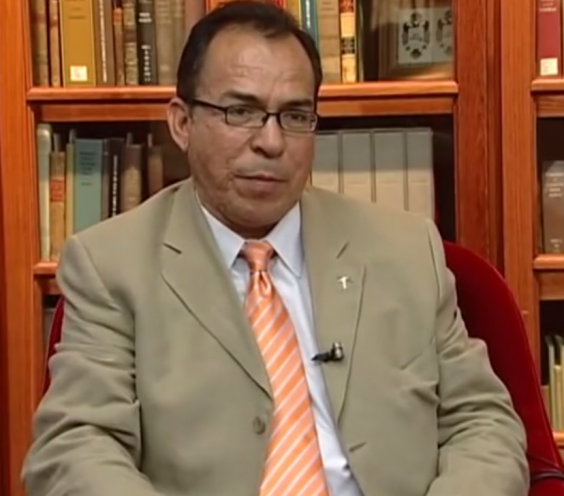The Freedom Chat Transcripts: Mexican Journalist Alfredo Corchado Jimenez
by Olivia Rose Mancing / September 9, 2014 / No comments

Alfredo Corchado Jimenez. Photo via Youtube user: UTEP Miners
The Freedom Chat is an ongoing video series by Sampsonia Way featuring interviews with journalists and other media workers facing censorship and repression in their home countries. In these Q&A’s, conducted via video chat, journalists talk with Sampsonia Way about press freedom, anti-free speech legislation, and exile.
In the tenth installment, editorial intern Olivia Rose Mancing spoke to Alfredo Corchado Jimenez, the Mexico City bureau chief of The Dallas Morning News. Jimenez is known for his award-winning reporting on drug trafficking and police corruption in Mexico and the U.S.
Mexico was ranked 152 out of 180 on Reporters’ Without Borders 2014 Press Freedom Index. Media pluralism is virtually nonexistent in Mexico, with Televisa and TV Azteca holding 90 percent of free and paid television concessions. How does this affect the general population’s understanding of and engagement in national issues?
Well it affects it in that they are monopolies — dual monopolies — duopolies as they call them here in Mexico. People are getting very limited information. There’s not widespread competition so there are not that many choices. Throughout the 1990s you saw much more of a push for outlets, other alternatives in media. Papers like Reforma were very instrumental in giving readers another view point, another choice and I think that contributed in many ways to building a much more civil society. But you’re right. When you have two TV networks like Televisa and Azteca basically in charge of the whole thing, the whole pie, expect it to be that much more difficult to be able to question, [to have] fresh perspectives. You leave a country really looking for other alternatives for more in-depth, more investigative journalism.
In Mexico, community radio stations are seeking constitutional recognition, as authorities are shutting down many stations. Many of these stations translate legal and corporate information into indigenous languages to assist those who are being taken advantage of by corporations or organizations. How do community radio stations combat corporate monopoly of the media? What hope is there for the strengthening of community broadcasting?
That’s probably one of the biggest changes in Mexico, the role of radio stations. Back when I arrived here in ’94, as a correspondent for the Dallas Morning News, there was really only one critical voice on radio. Nowadays, you wake up in the morning — and I think that’s really my favorite time of the [day] – when you’re listening to critical stations, or people who actually criticize the government and are trying to hold people accountable. I mean that’s something that’s very fresh and I think [it’s] needed by society.
Also, you have other perspectives that meet the demand. I think TV is much more into the entertainment phase of television or news, but it’s really radio that pushes the agenda. And that’s important because in Mexico, radio penetrates many more households than newspapers do.
How has social media changed Mexican journalism?
Social media in Mexico, and really throughout Latin America, has become a new phenomenon. I think it’s been very gratifying to see or hear Mexicans saying it’s not just about blaming people, but about changing it. So I think social media plays a critical role in that area. More than a third of the population has a phone, and often times a smart phone. You will see on websites and newspapers that someone took a picture of someone in an uncompromising position, [such as] taking a bribe or trying to extort, and I think that has been very revolutionary. But I think social media plays a few roles in Mexico. One role is that, it’s trying to help society, strengthen society. But also at a time when you have organized crime, you have a very sophisticated network of organized crime using social media trying to control the messages, trying to make it their message.




